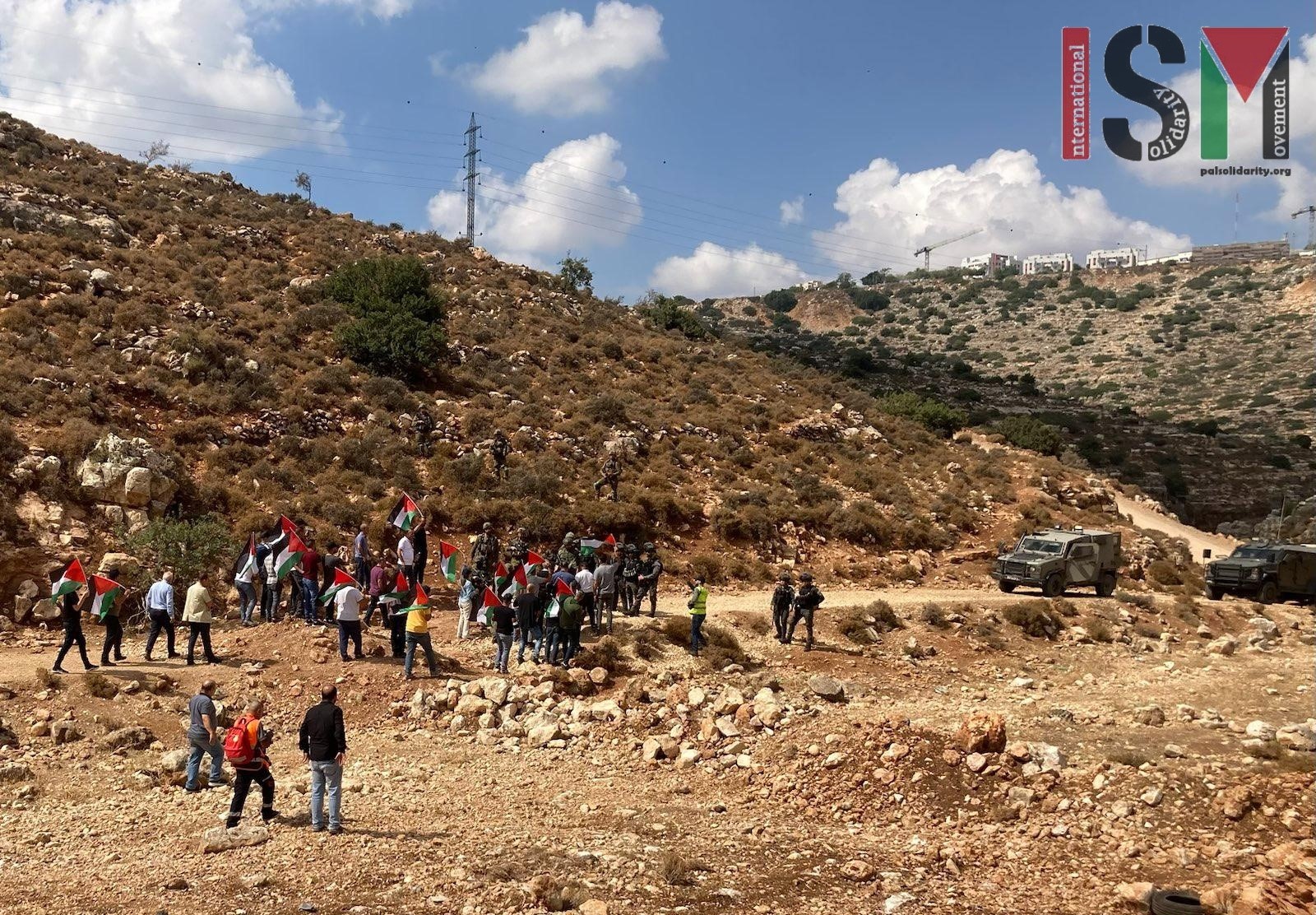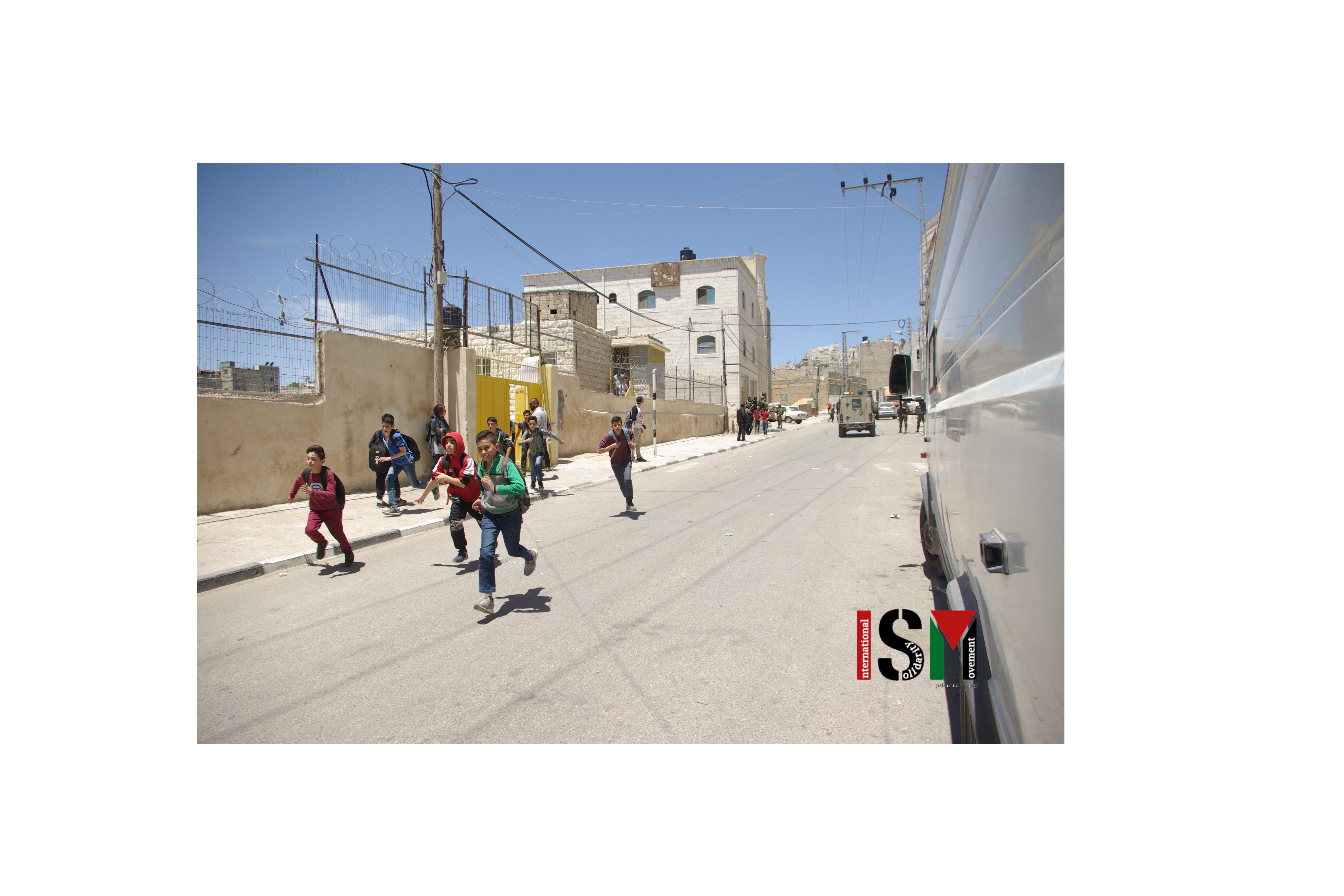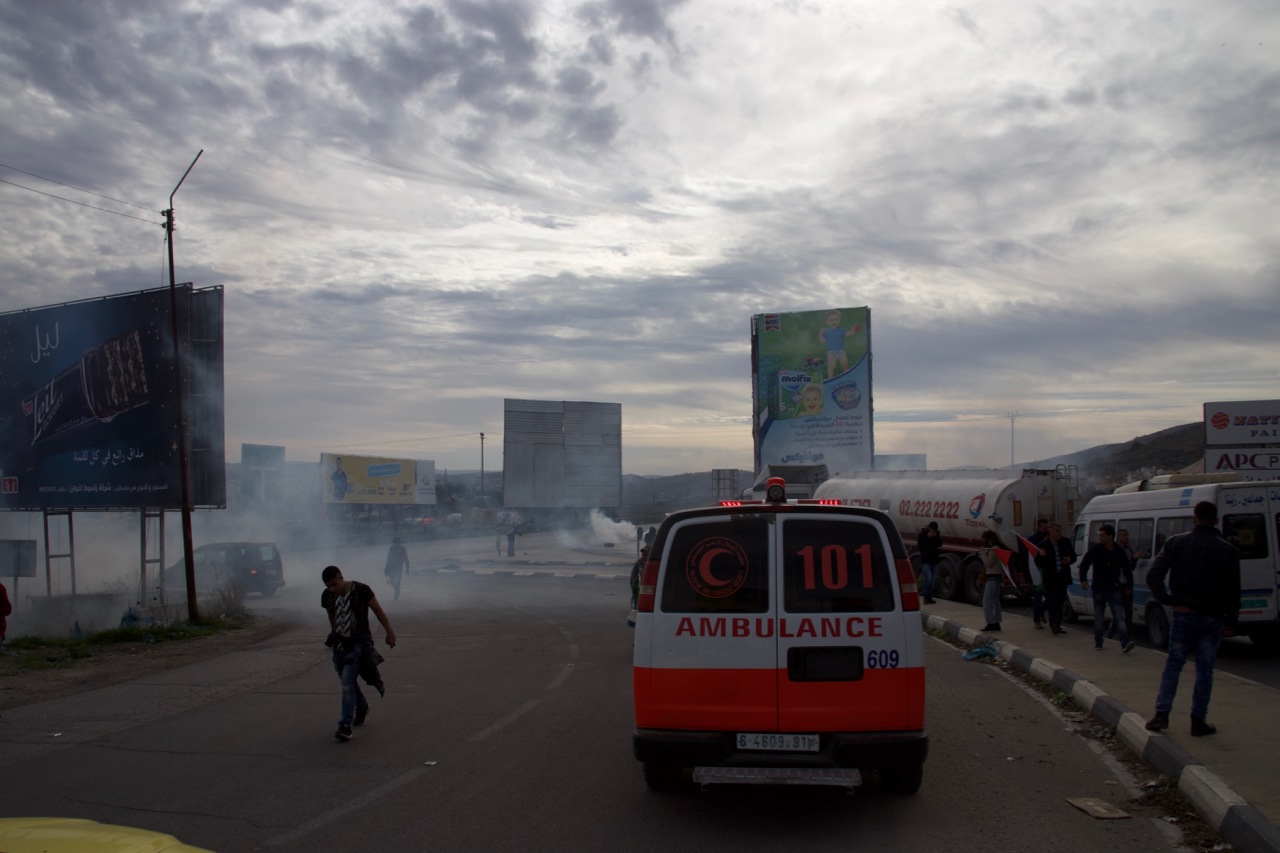Tag: Tear Gas
-
Weekly demonstration in Der Istya – 6th October
On Fridays 6th, people in Deir Istya protested against a new outpost that was built three months ago close to the village. After the prayer almost 70 protesters, among them members of the local Popular Resistance Committee, residents from the surrounding villages, ISM internationals and Israeli activists went down from the hill and, waving their…
-
A personal account of detention, racism and broken rules
May 8, 2019 | International Solidarity Movement, Al-Khalil team | Al-Khalil (Hebron), occupied Palestine The neighborhood of Salaymeh next to Salaymeh checkpoint (160) has been the center of tensions between Palestinians and the Israelis in the city of Al-Khalil (Hebron). This checkpoint cuts off an already poor and struggling neighborhood from the rest of the…
-
Demonstrators in Nablus met with violence by the Israeli Occupation forces
Protestors marched from the city center of Nablus to the Huwwari Checkpoint only to be met with brute force by the Israeli Occupation Forces.



